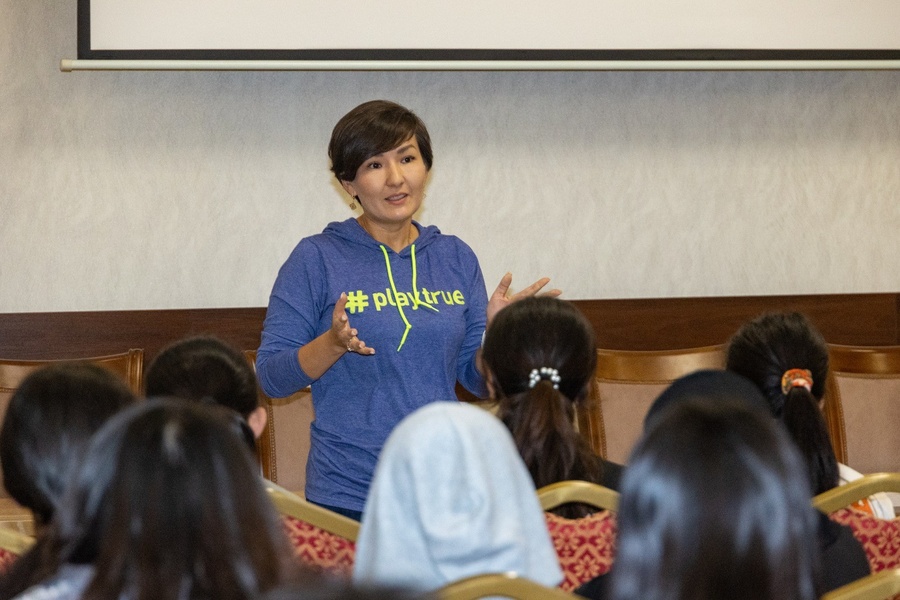Tashkent, Uzbekistan, August 2, 2023: Venera Abdulla, a member of the Olympic Council of Asia’s Anti-Doping Commission, knew her biggest challenge would be to keep the attention of the teenaged boys and girls who had walked through the door for the anti-doping seminar.
The OCA/IIHF Under-16 Asian Ice Hockey Youth Camp in Tashkent, Uzbekistan was in full flow and, off the ice rink, the topic of discussion was the all-important dangers of athletes taking prohibited substances.
“My first challenge was to keep their focus on me. The attention span of teenagers is very limited these days, and I thought the best way would be to have a Q and A session with the winners getting prizes,” said Venera, outlining her master-plan.
So, armed with six T-shirts and 50 caps, she kept peppering her young audience with questions. For instance: What does WADA stand for?
Up went the arm of 15-year-old Hunter Boland from Australia – Oceania is among the 27 National Olympic Committees across Asia at the week-long camp – who promptly called out: “World Anti-Doping Association”.
Umm, not quite, but the gangly teenager was quick to rebound on the puck adding “Agency”, much to the delight of his peers who cheered Boland as he went up to receive his T-shirt.
“We have received some education on anti-doping measures and I knew what WADA stood for,” laughed Boland. “In Australia, athletes in all sports are well aware of anti-doping measures and practices.”
Venera is hoping this will soon become the norm across Asia too. “Educating athletes at a young age is very important so that when they reach elite level they will already be prepared and make good decisions.
“I wasn’t surprised that athletes from Australia and New Zealand knew most of the answers to my questions. This is because they place a lot of emphasis on anti-doping education and know how to handle vulnerable situations,” added Venera.
The focus is firmly on anti-doping measures during the hour-long seminar. But the one aspect which the teenaged audience would remember was the fact that, at international sporting events during doping control, the athlete is accompanied to the bathroom by an official for a urine sample.
“There have been cases where senior athletes were so nervous they couldn’t give urine. At least this bunch will not be shocked,” smiled Venera.





